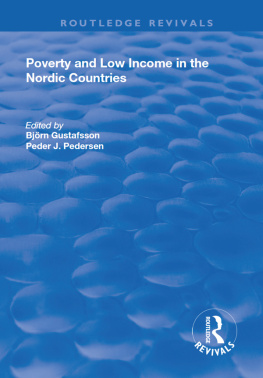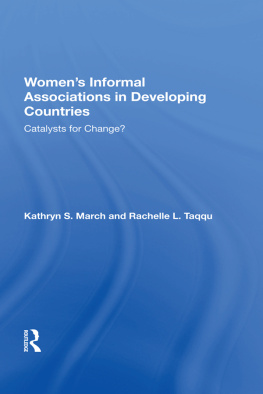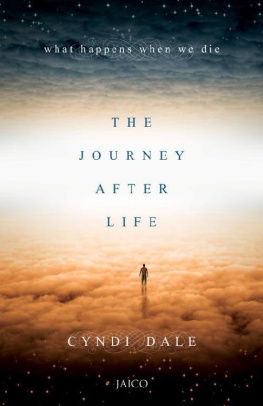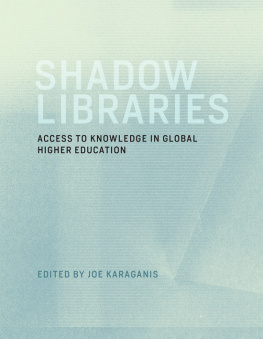First published 1992 by Westview Press, Inc.
Published 2018 by Routledge
52 Vanderbilt Avenue, New York, NY 10017
2 Park Square, Milton Park, Abingdon, Oxon OX14 4RN
Routledge is an imprint of the Taylor & Francis Group, an informa business
Copyright 1992 Taylor & Francis
All rights reserved. No part of this book may be reprinted or reproduced or utilised in any form or by any electronic, mechanical, or other means, now known or hereafter invented, including photocopying and recording, or in any information storage or retrieval system, without permission in writing from the publishers.
Notice:
Product or corporate names may be trademarks or registered trademarks, and are used only for identification and explanation without intent to infringe.
A CIP catalog record for this book is available from the Library of Congress
ISBN 13: 978-0-367-00471-2 (hbk)
We dedicate this book to the much maligned moneylender because of her ability to walk barefoot where bankers fear to tread.
Contents
, Dale W Adams and Delbert A. Fitchett
, Dale W Adams
, Parker Shipton
, Gertrud R. Schrieder and Carlos E. Cuevas
, Virginia DeLancey
, Douglas H. Graham
, Nimal Sanderatne
, Tongroj Onchan
, Nimal A. Fernando
, Mario B. Lamberte
, F. Esguerra and Richard L. Meyer
, Yoichi Izumida
, F. J. A. Bouman and R. Bastiaanssen
, C. P. S. Nayar
, F. J. A. Bouman and H. A. J. Moll
, Otto Hospes
, Hans Dieter Seibel and Uben Parhusip
, Ross H. McLeod
, Carl Liedholm
, Robert P. Christen
, Robert C. Vogel and Robert Wieland
, Jerry R. Ladman, Jose de la Vina, and Roberto Liz
, Dale W Adams and Marie L. Canavesi
, J. D. Von Pischke
, U Tun Wai
, Dale W Adams and P. B. Ghate
Guide
This book is a continuation of a line of inquiry into financial markets in low income countries begun in the early 1970s by the Agency for International Development (A.I.D.). Under the leadership of E. B. Rice, A.I.D. conducted a worldwide review of small farmer credit programs in 1972-73 that uncovered substantial and widespread problems. A summary of this review was published In Gordon Donald, Credit for Small Farmers in Developing Countries (Boulder, Colorado: Westview Press, 1976). Later, prescriptions for dealing with these problems were discussed in a Colloquium on Rural Finance in Low-Income Countries held in Washington, D.C., in September 1981. The meeting was sponsored by A.I.D., the Economic Development Institute (EDI) of the World Bank, and The Ohio State University. Most authors of papers presented in the Colloquium argued for major changes in donor funded finance projects. These papers were later published in Dale W Adams, Douglas H. Graham and J. D. Von Pischke, Undermining Rural Development with Cheap Credit (Boulder, Colorado: Westview Press, 1984). A companion book of readings was edited by J. D. Von Pischke, Dale W Adams, and Gordon Donald, Rural Financial Markets in Developing Countries (Baltimore, Maryland: Johns Hopkins University Press, 1983). These books outlined a new approach for developing financial markets in low income countries that was further elaborate upon in the World Bank's World Development Report 1989 that focused on the importance of financial market development.
Until the early 1980s most attention focused on formal finance (that portion of the financial system regulated by a central monetary authority); only occasional mention was made of financial activities that were not regulatedinformal finance. During the 1980s, however, research increasingly showed that informal finance played an important developmental role, especially for poor people: small farmers, landless people, operators of microenterprises, and women. It also became apparent in a number of countries that the informal system operated more efficiently and equitably than did formal finance.
These findings stimulated the organization of a state-of-the-arts Seminar on Informal Financial Markets in Development in Washington, D.C., October 18-20, 1989. The meeting was sponsored by several Bureaus within A.I.D, the EDI, the Agricultural Policies Division of the World Bank, and The Ohio State University. It brought together about 150 researchers, employees of donor agencies, consultants, and employees of non-governmental organization. This volume is made up of revised versions of papers presented at the Seminar along with several supplemental papers that cover topics or geographic regions not treated extensively in the Seminar.
We acknowledge the financial support given to the Seminar and to the preparation of this volume by the World Bank, A.I.D., and The Ohio State University. Melissa Brinkerhoff, Mike Caughlin, Eric Chetwynd, William Douglas, Antonio Gayoso, and Gloria Steele from A.I.D. were most helpful in assisting with arrangements for the Seminar. Avishay Braverman, Gershon Feder, Jacob Yaron, and Nicholas Wallis gave similar support from the World Bank.
The Seminar would not have been possible without the hard work behind the scenes of Barbara Lee and Sandy Krulikoski-Walden of The Ohio State University who typed, handled budgets, mailed, called, arranged, and, above all, had patience with the Seminar organizers. Sheri A. Jackson and Patrick Lavey of EDI efficiently and cheerfully handled the final preparations of the manuscript for publication. The individual authors of the various papers performed admirably in preparing their papers and acquiescing to revisions.
We especially wish to acknowledge the contribution of Professor F. J. A. Bouman, an authority on informal finance, who played a key role in reviewing chapters in this volume. While he was not able to attend the Seminar, he did prepare two valuable chapters that are included in the collection.
Finally, it should be pointed out that the views expressed in this publication do not represent the official views or policies of the Agency for International Development or the World Bank.
Dale W Adams
Delbert A. Fitchett
1
Introduction
Dale W Adams and Delbert A. Fitchett
Until recently few students of development concerned themselves with the financial activities occurring beyond the fringe of formal financial markets. Conventional wisdom held that these endeavors were comprised of exploitive loans from usurious moneylenders and of benign consumption credits lent by friendsneither of which promoted development. Moralists, politicians and policy makers occasionally fretted about informal lending, and these concerns usually had a negative tone: preaching against its evils, trying to regulate it, or developing credit programs aimed at substituting for it. Recently, however, increased interest in the private sector and a clearer perception of the difficulties in many formal credit programs have prompted many individuals to reevaluate old views about informal finance. Most of the chapters in this volume were written by researchers who are involved in this reassessment. The tone of their reports differs from conventional opinions about this topic and many authors conclude that informal finance makes important contributions to development, partly because formal financial systems often perform poorly.












